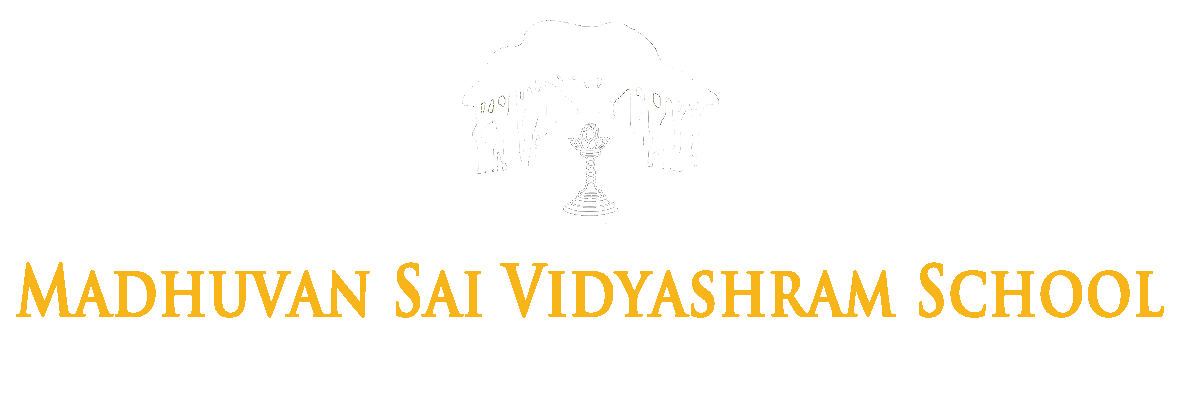ACADEMICS
Timeless Teachings in a Changing World
At Madhuvan Sai Vidyashram, instant methods producing only makeshift results are not adopted. Such methods tend to just be an eyewash to the parents. Instead, the child's potential is nourished steadily from its roots to promote a natural and lasting growth.
The curriculum at Madhuvan Sai Vidyashram School is rooted on the "Multiple Excellence Mode" offering a variety of subjects - to cater to varying tastes and skills among children and enable them to discover their aptitudes.
The emphasis of the Madhuvan curriculum is on the following:
Acquisition of Knowledge
Application of Personal Skills
Innovation
Presentation
Value Oriented Behaviour Modification




Apart from choosing from a variety of subjects, the teaching-learning process is so designed as to inculcate critical skills based on aptitudes, that would help students even after their schooling.
Counseling
Madhuvan aims at building up responsible human beings. So, students are counseled on the their responsibilities towards their peers, employers, and the society rather than just focusing on the career prospects .
Evaluation and Assessment
Madhuvan follows the system of multi mode evaluation. The system adopts an objective and fool-proof methodology to provide a realistic assessment of each student, at the various stages of schooling. While the system of continuous evaluation tests the knowledge of a student and ensures his constant academic preparedness the multi mode evaluation system tests the skills and competencies of a student and portrays his areas of aptitudes, personality strengths and weaknesses etc..
Primary Assessment
Oral and written tests are conducted on completion of every topic/chapter and their scores are recorded on a Elaborate Evaluation Report.
-
On an average, a term covers six tests in each subject (i.e., twelve tests per year).
-
After each test, students are motivated to improve upon their previous scores.
Secondary Assessment
Each term comprises 3 levels of assessment.
Diary Reports: This is an informal method of assessment where weightage of marks is equally divided between short class tests and quality of H.W.; regularity of C.W. as well as class participation during class discussions or group activities
Unit Tests: Once every mid-term students write short formal tests called Unit Tests. The syllabus is a small unit of the entire curriculum of the academic year. The advantages of this test is that it necessitates revision and breaks up the quantum of the course to be learnt for the Terminal Examination.
Terminal Examination : Each term ends with a Term Exam. Generally all important basic concepts are now tested. The test papers are designed to test knowledge, application and skills learnt during the term.
A report card of the student's progress is issued at the end of the Term. Due weightage is given to marks gained in Diary Reports, Unit Tests and the Term Exam, making each Term report a continuous process. A report card also includes assessment by the class teacher on character qualities and personality traits. An overview of a student's special achievements during a term is also mentioned.This system of Exams is designed to inculcate regularity in studies while also allowing students to express their individuality.
The 'Grade Point Average' is calculated at the term-end encompassing all curricular and co-curricular activities and the student's performance is assessed on a 10 point scale.
Tertiary Assessment
The School provides special tutorial lessons/remedial teaching both during and after school hours as and when the teachers feel that the student needs special attention and for which the School has special Tutorial rooms.

